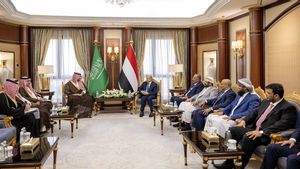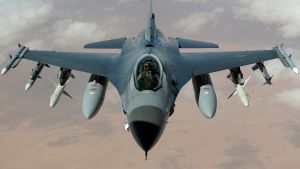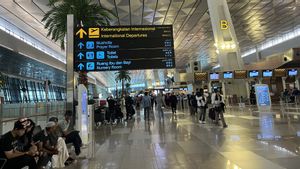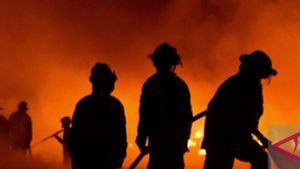JAKARTA - The banned Islamist militant group stormed a natural and oil gas production facility in northwest Pakistan on Tuesday, killing four police and two personal bodyguards, police operators and officers said.
The attack, carried out by about 50 militants, took place at facilities managed by the Pakistan Oil and Gas Company MOL, a unit of the Hungarian MOL, in Hangu District near the Afghan border, said police official Irfan Khan.
Police said militants targeted two wells, known as M-8 and M-10, with heavy weapons, including grenades with rocket launches. No group has yet claimed responsibility.
Previously, various militant factions, including the Pakistani Taliban, had been operating for years from remote mountains in the northwest, launching attacks on security forces and infrastructure in their campaign against the country.
"No MOL employees were at the scene of the attack, six members of the security forces guarding the area were killed," the MOL said, saying the members of the security forces included Pakistani soldiers and third-party contractors.
The company further said in a statement to Reuters that production from the wells had been temporarily suspended via long-distance access and has now been secured, pending completion of on-site regulatory investigations.
The company said production from other wells was still running and this incident did not affect the production of MOL in Pakistan.
"Security officers in M-8 managed to push back the attacks of the terrorists, but casualties occurred in M-10," said police official Khan, adding the terrorists also damaged solar power plants at gas power plants.
Furthermore, he said, the militants then fled to the neighboring North Waziristan area, where they came from.
Separately, Fahad Rauf, head of research at Ismail Iqbal Securities, said oil and gas production in Pakistan had declined in part due to no major discoveries, amid poor security, growing debt problems and lack of local technical expertise.
He said oil production had fallen 18 percent in 2022 compared to 2019, while gas production fell 14 percent in the same period.
另请阅读:
"The country has exploited most of the existing production areas, but cannot explore belts near the Afghan border due to security situations," he said.
He said foreign investment and exploration activities had increased in the Waziristan belt, but the situation has deteriorated since the US withdrawal from Afghanistan.
With the exit of foreign companies, he said "Pakistan does not have the expertise and funds to take advantage of non-conventional reserves, even though it has one of the highest natural gas reserves in the world."
The English, Chinese, Japanese, Arabic, and French versions are automatically generated by the AI. So there may still be inaccuracies in translating, please always see Indonesian as our main language. (system supported by DigitalSiber.id)


















